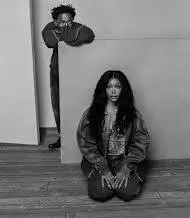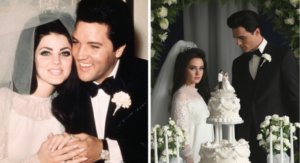By Alexander Lee
No one should go into Green Book expecting to be moved. Directed by Peter Farrelly, the film recounts the true story of the unlikely ‘friendship’ that formed between an African-American man and his white chauffeur. It is a storyline that is all too familiar, as the film can be best described as a spin-off of Driving Miss Daisy; that is, we’ve modified the seating arrangement. Unlike the 1989 hit, the driver in Green Book is Frank “Tony Lip” Vallelonga (Viggo Mortensen), and the passenger is jazz pianist Don Shirley (Mahershala Ali). Lip is a rough-edged Italian-American, although in the film Mortensen seems like he’s doing his impersonation of Tony Soprano. Shirley, on the other hand, is very formal and well-established, and he is about to embark on a tour of the deep south, consisting of a series of concerts for a (predominantly) wealthy, white audience.
The extraordinary contrasts in disposition between the two is what Farrelly stresses throughout the film, perhaps too much. Farrelly, who is now infamous for his previous films including Dumb & Dumber and Dumb & Dumber To, still makes a step towards improvement in his career with this film. The painfully preposterous gags are absent, but the lack of any depth is still present. Ultimately this is what brings Green Book down so low that it is fair to say that the film is one of the worst Best Picture winners in years.
Green Book’s simplicity, especially in terms of its approach towards handling racism, is entirely inexcusable. The film is too timid to present any serious themes or ideas, and instead, simplifies the idea of prejudices in the most superficial way possible: you’re either an ignorant racist or the “good guy.” There does not seem to be any in between here, which is almost too ignorant to be true. In reality, prejudices and racism are a plague that reveal a darker side to even those who appear to be the greatest of men. Yet regardless, Green Book feels the urge to deceive the audience by providing us with a story that has little to no bumps in the road. Any tense situation is easily diffused, all to promote the idea of the “unlikely friendship” between Shirley and Lip. The film further argues that lifelong friendships can be formed between any two people, regardless of race, class, or background. This is certainly true, even if it sounds trite, but the way Green Book explains this is absurd:
After examining Lip for just a few minutes, one could conclude that he isn’t familiar with African-American culture. Given the time frame that everything takes place in (it’s the early 60s baby!), it would not be a stretch to say that Lip had not previously had a serious or meaningful encounter with a black man ever.
But don’t worry!
Our man Lip is here to save the day. At one point in the film, Lip drives past a sign for KFC and exclaims, “Kentucky Fried Chicken! In Kentucky! When’s that ever gonna happen?!” Next thing you know, he’s driving with one hand on the steering wheel and another hand holding the notorious KFC bucket full of greasy poultry. He later finds out that Shirley has never had fried chicken in his life. Lip is flabbergasted and forces Shirley to try a wing and also says, “You people love the fried chicken, the grits, and the ‘colored’ greens.” Soon they’re both laughing and throwing bones out of the window. Not only is this a rip-off of a joke from “The Office”, but what is worse is how scenarios like this are exactly what writers Peter Farrelly, Brian Currie, and Nick Vallelonga (he is the son of Tony Lip who, with Green Book, has more Oscars than Martin Scorsese) expect us to think brought Shirley and Lip together. Farrelly’s harebrained approach to developing the plot shows within the first half of the film, and everything is just all too shallow, so we are never ‘off the deep end,’ nor do ‘we dive in.’
In actuality, more serious issues are probably what made the two bond so well — not KFC, fantastic jazz, or writing letters. Midway through the film we learn that Don Shirley is gay. It could have been (and should have been) a monumental moment. But instead, it is wasted; Green Book’s voice is actually too timorous to remotely address this topic. So instead, it is suggested in the most passive way. It therefore feels like a useless additive to the plot that serves no purpose. Our protagonist’s inner voice has been unjustifiably muted and tone deaf in this heavily award-nominated film. Shirley was a minority by all means, but here, he feels as dry as dehydration synthesis.
It is easy to see many people attempting to rebut all the accusations and controversy that has arisen by reinforcing the idea that Green Book was manufactured to be a gentle crowd-pleaser from the start, as the film did win the People’s Choice Awards at the most recent Toronto International Film Festival. But Green Book is still overly-conventional, even when you compare it to recent Oscar-nominated films that were [at least generally] crowd-pleasers and dealt with racism; Green Book lacks the audacity of Get Out, the ingenuity of BlacKkKlansman, or the sophistication of Selma. Green Book is lacking texture and instead feels like “cinematic porridge.” The film is unwilling to take any risks, which explains why every sixteenth note can be seen from a double whole note away. Farrelly establishes Green Book in such a foreseeable manner — everything from the opening scene to the closing texts prior to the end credits which provide less information than what Siri can tell you in a few seconds. The limpid complexion of Green Book causes a denaturing of a certain pathos that would have been necessary for the film to have any memorabilia. So instead, we’re left with a story that feels like a corpse of a dead plot that has been worn out time after time.
But still, there is an element to Green Book that prohibits the audience from living in the Sunken Place of Cringe for the full two hours and ten minutes. Despite the lack of intimacy between the audience and Farrelly’s watered-down characters, the undeniable talent of Ali and Mortensen (who was recently at the Jacob Burns Film Center) diffuses through the layer of clichés the rest of the film glides on. Particularly Ali, who’s character’s conceit neatly disguises his idiosyncratic unease and self-consciousness. Ali proves once again to be congenial company and it is no shock that he took home his second Academy Award for his role as Dr. Shirley. Meanwhile, Lip is portrayed as a walking (or maybe I should say “driving”) stereotype of an Italian living in the sixties. It’s an exaggerated image, one that is so far off target that it almost tempts the audience into falling in love with the performance anyway. But the use of caricature in Green Book is a futile device that, like the rest of the film, stuffs you but leaves you empty.
As surprising as it may be that the film got nominated for Best Picture, it certainly is a fun enough time to see why it has been showered with support from plenty of moviegoers. The music is delightfully charming, and Ali’s debonair look is enough to carry the film to the finish line.










Be First to Comment